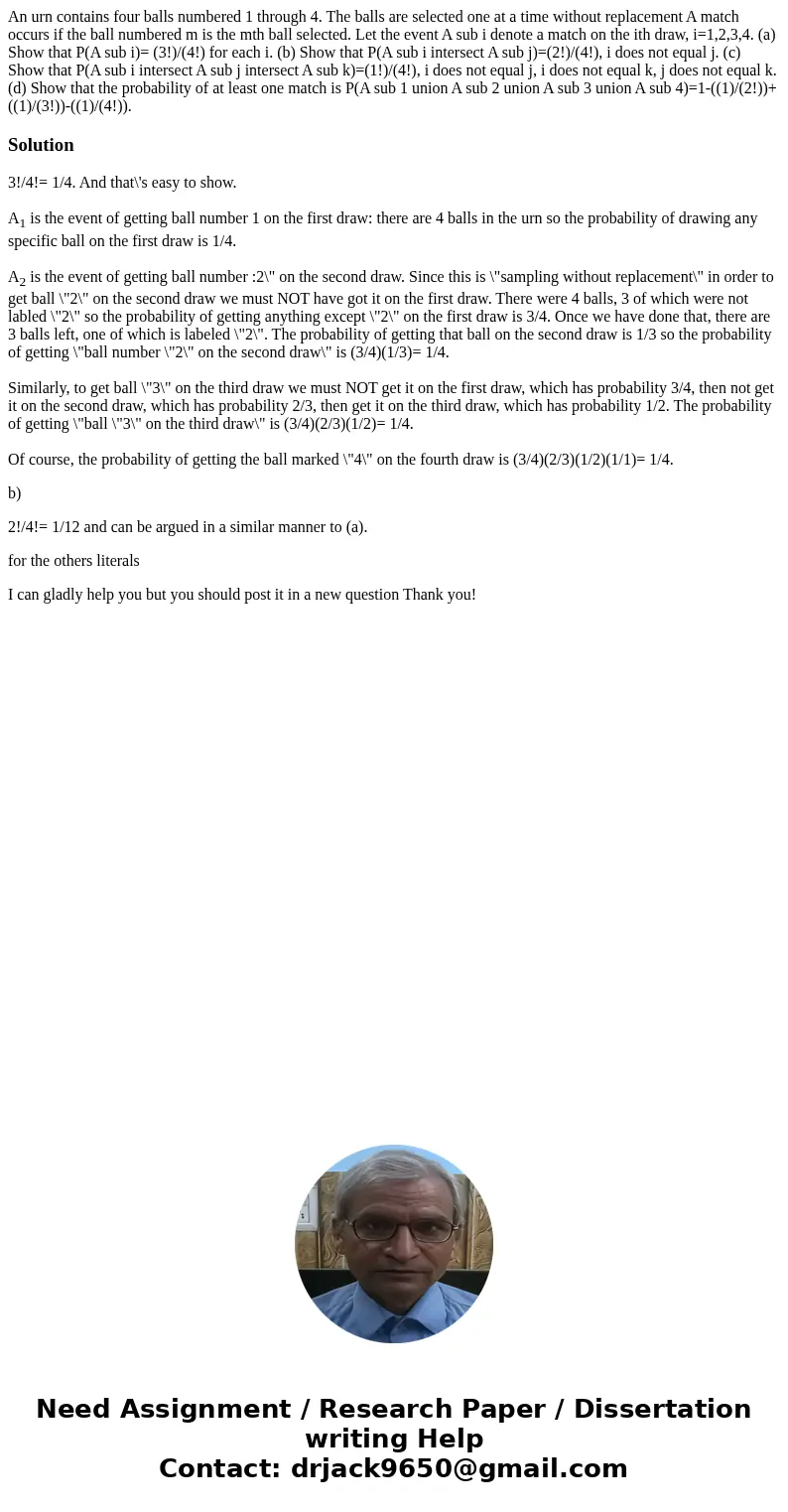An urn contains four balls numbered 1 through 4 The balls ar
An urn contains four balls numbered 1 through 4. The balls are selected one at a time without replacement A match occurs if the ball numbered m is the mth ball selected. Let the event A sub i denote a match on the ith draw, i=1,2,3,4. (a) Show that P(A sub i)= (3!)/(4!) for each i. (b) Show that P(A sub i intersect A sub j)=(2!)/(4!), i does not equal j. (c) Show that P(A sub i intersect A sub j intersect A sub k)=(1!)/(4!), i does not equal j, i does not equal k, j does not equal k. (d) Show that the probability of at least one match is P(A sub 1 union A sub 2 union A sub 3 union A sub 4)=1-((1)/(2!))+((1)/(3!))-((1)/(4!)).
Solution
3!/4!= 1/4. And that\'s easy to show.
A1 is the event of getting ball number 1 on the first draw: there are 4 balls in the urn so the probability of drawing any specific ball on the first draw is 1/4.
A2 is the event of getting ball number :2\" on the second draw. Since this is \"sampling without replacement\" in order to get ball \"2\" on the second draw we must NOT have got it on the first draw. There were 4 balls, 3 of which were not labled \"2\" so the probability of getting anything except \"2\" on the first draw is 3/4. Once we have done that, there are 3 balls left, one of which is labeled \"2\". The probability of getting that ball on the second draw is 1/3 so the probability of getting \"ball number \"2\" on the second draw\" is (3/4)(1/3)= 1/4.
Similarly, to get ball \"3\" on the third draw we must NOT get it on the first draw, which has probability 3/4, then not get it on the second draw, which has probability 2/3, then get it on the third draw, which has probability 1/2. The probability of getting \"ball \"3\" on the third draw\" is (3/4)(2/3)(1/2)= 1/4.
Of course, the probability of getting the ball marked \"4\" on the fourth draw is (3/4)(2/3)(1/2)(1/1)= 1/4.
b)
2!/4!= 1/12 and can be argued in a similar manner to (a).
for the others literals
I can gladly help you but you should post it in a new question Thank you!

 Homework Sourse
Homework Sourse